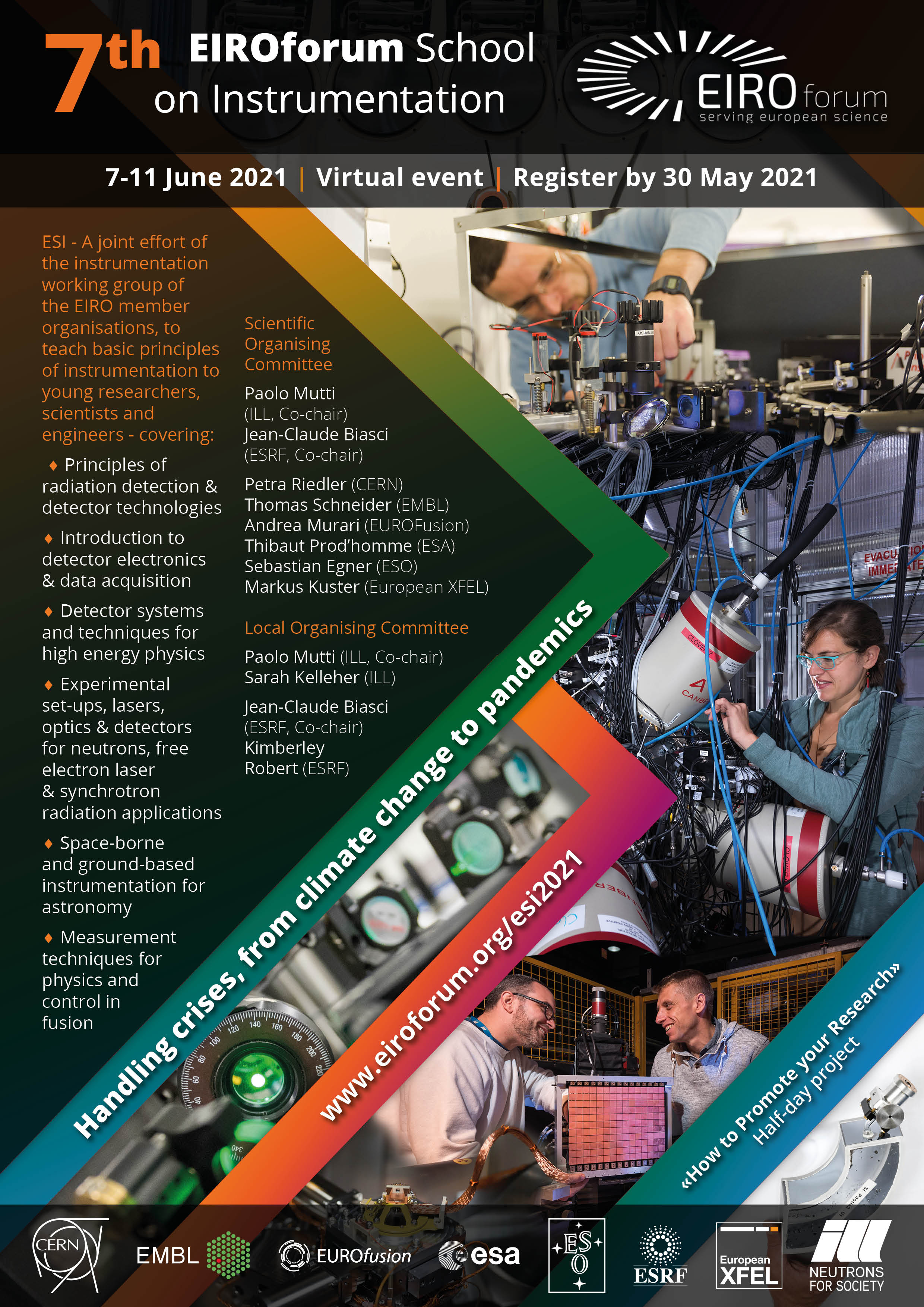The 7th EIROforum School of Instrumentation 2021
ILL4/rdc-1 - Amphi Chadwick
ILL4
The EIROforum School of Instrumentation (ESI) is a biennial event, jointly organized by the Instrumentation Working Group of the EIROforum organizations.
The objective of ESI is to teach the basic principles of instrumentation to young researchers (PhD students, postdocs) and engineers, mainly from the EIRO organizations. A fraction of the places are reserved for particularly talented (PhD) students from outside the EIRO organizations who work on instrumentation topics.
One day of the school is dedicated to our highlight topic : Handling crisis from pandemics to climate change with several guest-speakers to present their expertise and the contributions made by the scientific community in reaction to these crisis.
The sixth school (ESI 2019) was organized by the European Space Agency ESA and took place from 13-17 May 2019.
The scientific programme of ESI addresses all aspects of instrumentation related to the missions of the EIROforum organizations.

